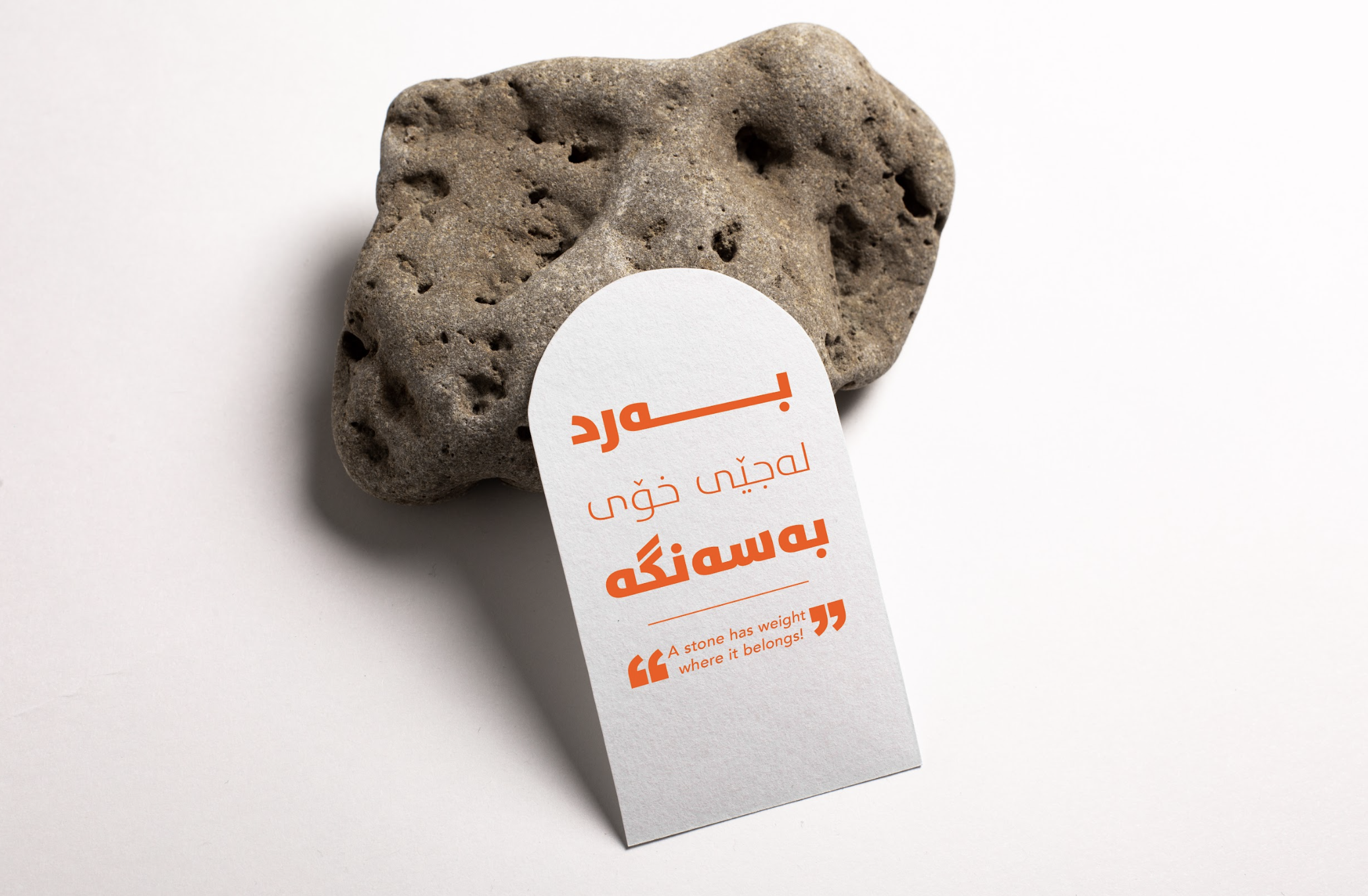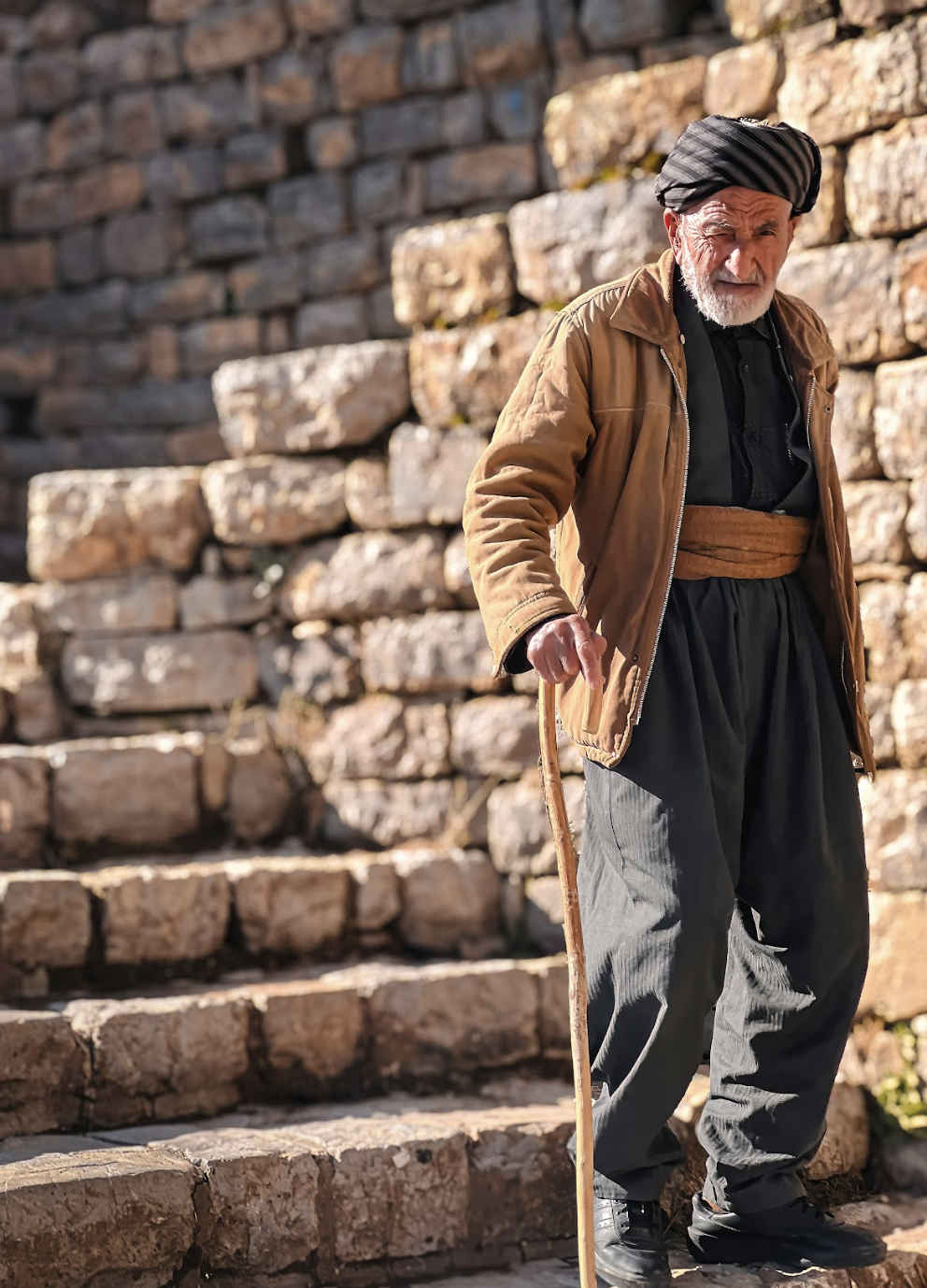Kurdish proverbs are surprisingly mighty things. With one short, memorable phrase, the collective wisdom of generations can be brought to bear on an everyday conversation. I can’t exactly recall the first Kurdish proverb that I learned. Perhaps it was during my first month in Kurdistan, sipping tea at Sulaymaniyah’s famous Saholaka marketplace and learning how to say, “There’s a hair in that yogurt,”1 a clever proverb used for situations where something is suspicious, like how English speakers might say, “Something smells fishy.”
Another early proverb I learned, from a close Kalari friend, was “There’s no watered valley without a jackal.”2 This is used to remind the listener that everywhere on this planet is a mixture of both good and bad. Over the years, this proverb has often provided a great answer to the common question, “Which is better, America or Kurdistan?”
Regardless of which proverb I learned first, I have since become an eager student of pendi pesinan, traditional Kurdish proverbs, because from the very beginning of my journey as a learner of the Kurdish language until now, these local proverbs have proven to be a remarkable window into the local language and culture, even leading me deeper into the riches of wisdom itself.

From the Sumerians to today
Proverbs have seemingly been around for as long as humanity has used language. Even the ancient Sumerians recorded proverbs such as, “He who possesses many things is constantly on guard.” Why have proverbs proved so popular and enduring, such that in the year 2025, both scholars and Kurdish Instagram stars are still referencing them? I believe this is because of the many things that proverbs can do, even though they are a relatively small tool of human language.
King Solomon, a biblical figure renowned for his wisdom, famously compiled an entire book of proverbs. In the preface, he states some of the powerful results that can come from learning good proverbs:
For gaining wisdom and instruction;
For understanding words of insight;
For receiving instruction in prudent behavior,
Doing what is right and just and fair;
For giving prudence to those who are simple,
Knowledge and discretion to the young—
Let the wise listen and add to their learning,
And let the discerning get guidance—
For understanding proverbs and parables,
the sayings and riddles of the wise.3
Who among us doesn’t want to gain more wisdom, understanding, and insight? Or to know how to do what is right and just and fair? Whether young and inexperienced or already wise and discerning, proverbs have, for thousands of years, been helping us as we seek to navigate a complex and often difficult world. Famous Kurdish poets, such as Piramerd, understood the profound value of proverbs, and compiled their own books of them, just as Solomon did so many years ago.

Actions and words
Here are six ways in which I have been helped by the enduring wisdom and power of Kurdish proverbs, in particular.
First, Kurdish proverbs have the remarkable ability to summarize a life lesson into one short, catchy phrase. Sure, you could give your son a long lecture about how hard work leads to a more satisfying life. Or, if you are a Kurdish father, you can simply tell your son a proverb I learned in Erbil, “A tired hand on a full stomach.”4 In other words, tiring, hard work is the way to have your needs met – but if you are lazy, you’ll go hungry. Yes, someone could write a whole book about the importance of work ethic (and many have), but a simple proverb like this wonderfully condenses the main point into a small saying that you can take with you anywhere. In this way, proverbs conveniently condense wisdom and make it portable.
Second, Kurdish proverbs provide insight into universal wisdom, the kinds of ideas that have been proven true again and again, all over the world. For example, Kurds say, “You reap what you sow.”5 Many foreigners will recognize this proverb from their own languages, or from the book of Galatians 6, written by St. Paul nearly 2,000 years ago. Clearly, this principle of what you harvest matching what you planted is one that many societies have held up as true and wise. In this way, Kurdish proverbs help us by pointing us again to this universal wisdom.
Third, Kurdish proverbs provide wisdom for how to navigate the unique dynamics of Kurdistan itself. Another proverb I was taught early on is the saying, “Not by the beard, by the work.”7 This proverb carries the same idea as our English saying, “Actions speak louder than words.” In other words, it’s what someone actually does that really matters, not merely what they say, or, in the case of Kurdish society, their beard’s appearance. In Kurdish culture and history, a beard might suggest that someone is a fierce fighter, or that they are a holy person. But the wisdom of the past tells us this outward signal is not nearly as important as how that person lives. Just for fun, I like to mix these Kurdish and English proverbs together into a hybrid form that can work in both the United States and in Kurdistan: “Actions speak louder than beards.”

Time and place
Fourth, Kurdish proverbs also give a person access to the collective wisdom of many past generations, those who have gone before us and have had experiences that we might not yet have had as an individual. One Kurdish proverb says, “The Levant is sugar, but the homeland is sweeter.”8 Perhaps a young person has not had the chance to travel, and they are obsessed with how wonderful other countries seem. Even if they don’t get to experience it themselves, this proverb allows them to learn from the group wisdom of those who have already tried it – in this case, those who traveled to the Levant, to old Syria and Lebanon, places so rich in past eras that the memory still echoes across the Middle East today. And yet, just like we say in English, “There’s no place like home.” In this way, proverbs give an individual access to the collected wisdom of their ancestors in a way that guides and helps them, even if they themselves have not yet had that experience.
Fifth, for foreigners like me, or for younger Kurds growing up in the diaspora, Kurdish proverbs can also provide helpful and fascinating insight into Kurdish culture. For example, take the proverb from Sulaymaniyah, “I eat bread, but I don’t eat bread soaked in yogurt.”9 To an American, this proverb initially makes no sense. But if you dig into the meaning of the proverb – which could be summarized as, “I accept true compliments, but I don’t accept flattery” – you get not only a reminder of the importance of guarding against so-called ‘friends’ trying to manipulate with sweet words, but also a window into Kurdish cuisine and language. Bread is highly prized in Kurdish culture and has a wholesome reputation as something that is fundamentally good, even holy. But mastaw, yogurt water, while also viewed as healthy and good in its literal form, also serves as a symbol for the kind of compliments that don’t come from the heart, but from a desire to use someone for personal gain. Because of this, it’s not uncommon to hear Kurds saying things like, “Don’t make yogurt water,”10 (i.e. Don’t flatter) or “He’s a yogurt water man”11 (i.e. He’s a flatterer).
By learning this proverb, I learn important things about Kurdish culture as well as its unique approach to the universal problem of how to handle people who try to flatter others for their own benefit.
Sixth, proverbs can provide a tactful answer in a conversation that might be going in unhelpful directions. For example, if I’m talking with someone and they begin using negative stereotypes for an entire country or ethnicity, Kurdish proverbs provide me with a friendly correction, “Don’t burn the wet wood with the dry.”12 Surprisingly, rather than being offended, the person I say this to will usually nod and agree with me. I have just given them a correction, but because it has been delivered in the form of a local proverb, my conversation partner warmly accepts it. They may not have accepted my correction if I had made it directly, for example, “Don’t stereotype people like that.” Yet in the indirect form of a proverb, it is happily received and affirmed. In a world of so much division and arguing, there’s much potential in this kind of gracious or tactful speech.

The slow and steady path of proverbs
Here, someone may raise an objection. Are old Kurdish proverbs, or proverbs in general, really still relevant in this modern world? My answer would be a resounding, “Yes.” Not only are they relevant, but they are, in fact, more needed than ever. That’s why our world is one that has the kind of access to information that previous generations could only dream of. With only a smartphone and an internet connection, anyone can read, watch, or listen to an infinite sea of content, information, and truth claims.
Overwhelmed by the vast ocean of online information, how is a mere human supposed to navigate, discerning between what is true and what is false? Or between what is helpful and what is misleading? Or be able to recognize what is propaganda, misinformation, or when an AI bot is telling the truth versus when it is hallucinating? The answer is to be found not merely in more information. Rather, the answer is to be found in wisdom, that ancient attribute that has always helped us to filter what we experience, sifting and testing it with truths that we know deep down simply do not change from generation to generation, or from one TikTok trend to another.
For example, Kurds say, “The one upon the slow ways is the one upon the blessings.”13 When faced with so many online making big promises about getting rich or getting fit with almost no time spent or investment made, this proverb reminds the wise person that the quick way is usually a deception. Instead, the slow and steady path is almost always the true path to success. Here, this traditional proverb equips the wise person to guard themself against the empty promises that social media algorithms keep throwing at them, day after day.
Yes, to navigate this age of overwhelming information, today’s generation desperately needs wisdom. And where can wisdom be found? Well, the humble proverb is as good a place to start as any. Those who do not dismiss these humble tools of the Kurdish language but instead pay attention to them will find, as I have, that though they are small, they are also surprisingly mighty.
Andrew Wilkinson is a researcher and educator who has worked in Kurdistan for nine years. He is currently based in Erbil.
1Soranî: “Ew maste muyekî tîaye”
2Soranî: “Çem bê çeqel nabêt”
3Proverbs of Solomon 1:2-6
4Soranî Hewlerî: “Destî mandu leser zigî têr”
5Soranî: “Çî biçênît ewe dedruîtewe”
6Galatians 6:7
7Soranî: “Be rîş nîye be îşe”
8Sorani: “Şam şekere bellam wellat şîrîntire”
9Soranî: “Nan dexom bellam nanî mastaw naxom”
10Soranî: “Mastaw meke”
11Soranî: “Mastawçîe”
12Soranî: “Ter u wuşk pêkewe mesutênin”
13Soranî: “Eweî leser sebrane leser xêrane”

